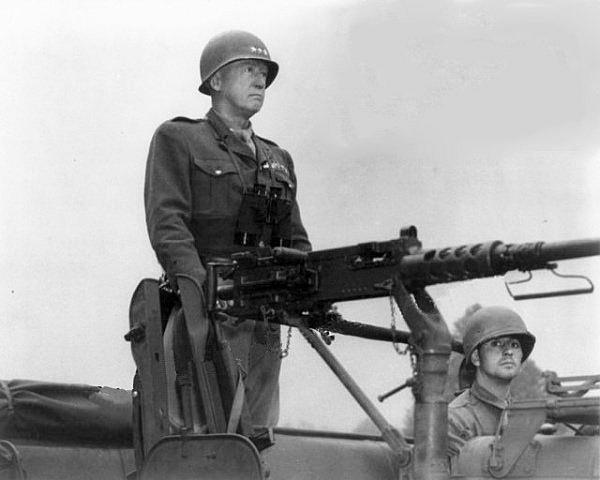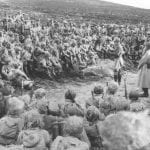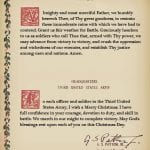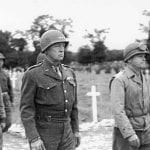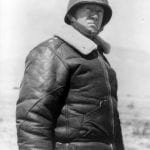U.S. General George S. Patton has a red-white-and-blue reputation in the annals of popular American culture, but this traditional Episcopalean was suprisingly open minded when it came to other religions. Part of his interest came in wanting to understand the inhabitants of foreign theatres of war: He reportedly read the Koran before combatting Erwin Rommel in North Africa. During the Atlantic crossing Patton, ever the student, read a copy of the Koran, better to understand the Muslim population of North Africa. He described it in his diary as “a good book and interesting.” But much of his interest comes from an open mind that embraced beliefs considered heterodox to a Christian.
During the Punitive Expedition in Mexico, Patton first met Mormons. Some Mexican bandits were harassing American Mormons who had built farms across the border, and the U.S. troops were escorting those who wished to leave. Patton borrowed a copy of the Book of Mormon from one of the faithful and read it with great interest. One of the families he protected was that of Bishop Crow. Patton said that the “old procreator” had four wives at least, because every time he went to escort a Mrs. Crow across the border, it was a different lady.
Decades later, while stationed in Hawaii, the Pattons were invited to a party thrown by the Mormons on the windward side of Oahu to celebrate the visit of some church elders from Salt Lake City. Mrs. Patton was seated near the head of the table near a taciturn and sour-looking elder whom she could not engage in small talk. Finally she noted the name on his place card and said hopefully, “Are you by any chance related to that nice Bishop Crow and his lovely wives that Colonel Patton escorted out of Mexican territory in 1914 when we were having trouble with Pancho Villa?” The surprised elder turned to her and said, “He was my father, madam, but Bishop Crow is now one of the Twelve Apostles.” When her husband tried to explain that the “Twelve Apostles” referred to the governing body of the Mormon Church, Mrs. Patton waved him away, not wanting to spoil the thrill that she had evidently entertained about sitting next to the son of one of Christ’s disciples.
Patton also believed in reincarnation. From childhood he had a sense of prior lives that seemed to be more than a mere heightened sense of déjà vu and not just the product of his extensive study of history. His past lives
extended across a number of historical periods, but there was one constant—he was always a soldier. Patton believed that after he died he would one day be reborn to lead men in battle.
This article is part of our larger selection of posts about the George S. Patton. To learn more, click here for our comprehensive guide to General Patton.
 |
 |
 |
This article is from the book Patton: Blood, Guts, and Prayer © 2012 by Michael Keane. Please use this data for any reference citations. To order this book, please visit its online sales page at Amazon or Barnes & Noble.
You can also buy the book by clicking on the buttons to the left.
Cite This Article
"Patton’s Interest in Other Religions" History on the Net© 2000-2024, Salem Media.
April 25, 2024 <https://www.historyonthenet.com/pattons-interest-in-other-religions>
More Citation Information.



